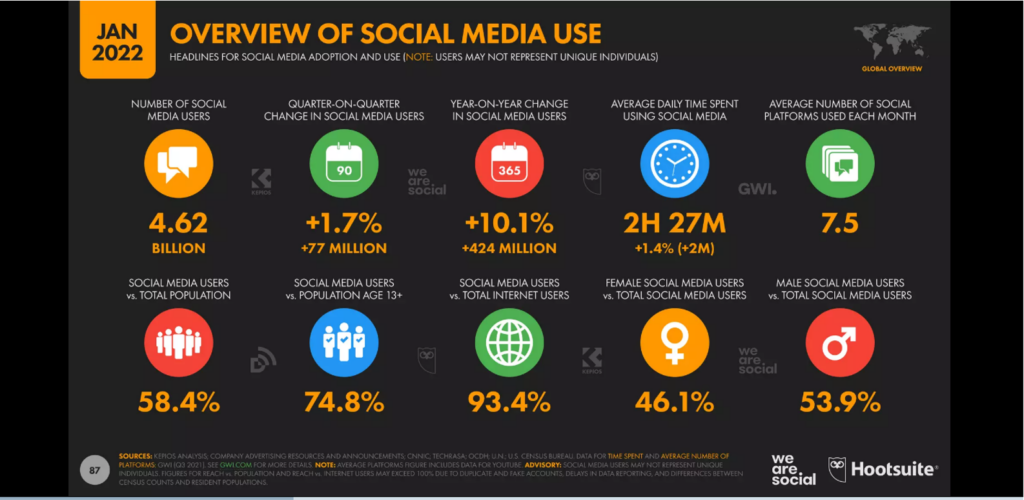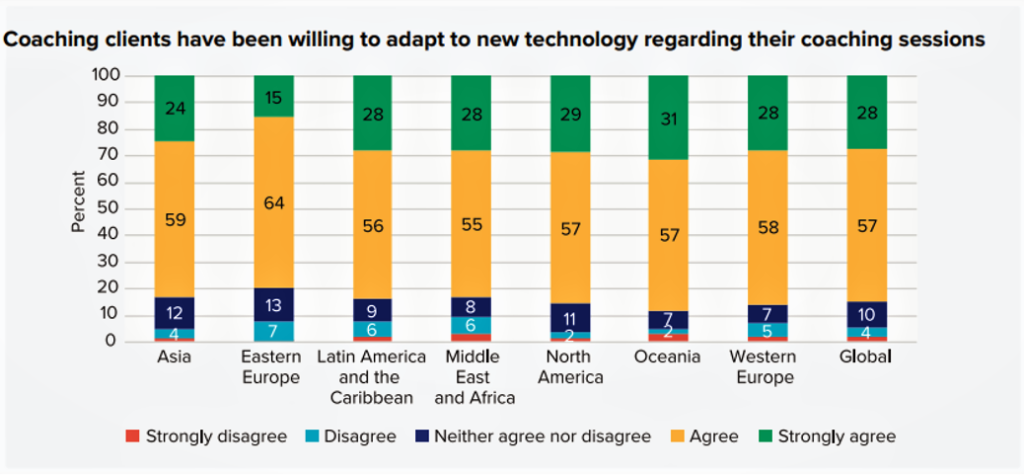In the words of Heraclitus, the Greek philosopher, “change is the only constant in life”. And we cannot agree more. Our coaching industry too has evolved over the years—from the time when it was simply associated with sports, to an industry built around the top 1% wanting to reach new heights, to this day when it has seeped into almost every industry and become accessible to almost everyone.
To remain relevant in an industry where there are now more than 70,000 coaches practicing globally, keeping up with the latest industry trends is a must.
Who better than industry experts to share their thoughts and ideas on coaching industry trends? Here’s what 5 expert coaches have to share about coaching statistics as well as the trends that ruled the coaching industry in 2022 and the trends that we can expect in 2024:
1. Ram Gopalan
Ram Gopalan is recognized by CHRO Asia as one of the most talented coaching leaders in India. He is a Marshall Goldsmith-certified coach whose coaching expertise cuts across profiles – from technical engineers and sales staff through to creative teams—as well as across cultures. He is known for building successful teams, including an award-winning digital agency that supported global clients such as Coca-Cola, Seagrams, Taco Bell and Citibank. Ram talks about 5 prominent coaching industry trends that ruled in 2022:
a. A combination of training for skills and coaching as a follow-on
Ram Gopalan cites an example of an organization that ran a workshop with some 50 top-performing managers. The idea was to help them get better at collaboration. They ran a mock simulation where collaboration took the center stage. Once the coachees understood the value of collaboration, the simulation was followed by group coaching (or even individual coaching based on the requirement). This would help the coachees work on the insights they had gathered from the mock simulation and make them a part of their muscle memory, so that collaboration comes naturally to them. Here, coaching is incorporated in the organization to inculcate better behavior/ habits.
b. On-demand availability of coaches
Suppose an entire organization transitions into something new—for instance, when a company goes digital – all the employees (and not just the top executives) need to undergo training and change management. Part of this is to do with employee behavior, mindset and attitude and part of it is skill. Here, the company wants their employees to attend workshops and at the same time seek help from coaches whenever required without going through a full coaching journey.
c. More technology coming into coaching
As the corporate world transitions from physical to digital, one can witness a growing need for incorporating technology into the business of coaching, especially when dealing with groups—it could be for note taking, attendance tracking, signing service, conferencing tools, scheduling tools, or even an end-to-end coaching management platform that collates all the necessary digital tools in one place, such as Simply.Coach.
As technology advances, coaches have adapted themselves accordingly and this has been an intensifying trend in the coaching industry. ICF’s 2020 study on Covid 19 and its impact on the coaching industry reveals interesting statistics on coaching effectiveness. There has been a drop in in-person coaching by 74%, and virtual coaching witnessed a steep growth by 57%. More coaching clients are willing to adapt to new technology as far as the coaching sessions are concerned.
Hence, the usage of online tools is on the rise ever since. Coaches are collaborating with advanced Artificial intelligence (AI) in order to give their coaching program an extra edge. However, this doesn’t mean that AI will replace human coaches altogether. It will only act as an aid to enhance your clients’ coaching experience.
The latest edition of our “The Business of Coaching” newsletter dives deep
into how AI has made its way into coaching.
Subscribe to our newsletter to know more!
d. Catch the professionals young
Another coaching industry trend that’s catching up really quick is middle management coaching, or as Ram Gopalan would like to call it “catching them young”. This approach is quite proactive where you coach young professionals to become great leaders rather than coaching leaders to hone their skills. This could be done at a group level, followed by individual sessions depending on what the situation demands.
e. Prioritizing wellness coaching
The year 2022 has witnessed IT organizations slowing down. The huge tech uplift that took place during COVID now seems to be running downhill. Mass employee layoffs have become a global phenomenon in the past year and might get augmented in the immediate future as well. Hence, companies should be prepared for any uncertainty—companies should prepare employees for the change and be more resilient towards it and also prioritize their emotional wellness. There again, the employees need a blend of both therapy and coaching as and when required.
2. Venkat Raghavan G
Venkat Raghavan G is a Marshall Goldsmith-certified executive and leadership coach, offering his invaluable coaching services to founders, CEOs, and senior management employees. His coaching expertise lies in brand management, domain expansion and driving profitable growth. He believes that both ideal leadership behavior and well-executed strategy are secret ingredients for successful business outcomes. According to Venkat Raghavan G, some of the coaching trends prevalent in 2022 and as we transition into 2024 are as follows:
a. Hybrid mode of communication
COVID resulted in 100% virtual coaching. But now as the world is slowly getting back to normalcy, there’s an increased demand for a hybrid mode of communication—a blend of both video conferencing and in-person coaching sessions. The hybrid mode of communication can definitely be termed as an emerged trend in coaching.
b. Amalgamation of coaching and consulting
When we talk about coaching, it is mostly on the lines of pure coaching. But in reality, many coaches deal with a combination of coaching and consulting. Hence, another practice that has achieved prominence in the coaching industry in 2022 is a coaching plus consulting blend of engagements with clients.
c. Awareness about ROI among clients
It is critical to note that not all coaching engagements result in value-based outcomes for the participant or the sponsor. There has been a rising awareness among clients about their Return on Investment (ROI) from coaching. Hence, measurable outcomes are becoming increasingly important. According to the International Journal of Coaching in Organizations, Measuring ROI is a great way to show managers and executives the real value in terms of metrics that they understand and desire. A case in point is the globally accepted ROI Methodology™ that collects data, including ROI, to display the coaching success. Many coaches are now creating short-duration coaching programs with specific outcomes mentioned at the very onset. These programs are developed around specific pathways, backed by resources and traditional coaching.
d. Opportunity of reverse mentoring
Venkat Raghavan G believes that “democratization of coaching” also led to the concept of reverse mentoring. This may result in senior staff benefiting from junior employees. He cites an example of social media which has become a power medium for marketing coaching businesses and reaching out to a greater audience in 2022. Since social media becomes one of the most sought-after marketing mediums, young professionals—who are more proficient in using social media—can coach the senior leaders about the same, leading to reverse mentoring.

e. Assigning budget for coaching as a distinct HR L&D activity
Learning and Development budgets were traditionally focused on training in most organizations. However, in recent times, organizations are increasingly assigning budgets for coaching in specific. According to Venkat Raghavan G, this trend is quite visible both in large corporates and even smaller organizations that are coaching only CFOs or one CXO.
3. Pradeep Sarin
Pradeep Sarin is the Founder of NewVer.Me—a digital coaching platform that offers affordable, accessible, and personalized coaching to young professionals, start-ups, and small businesses. Pradip Sarin earned his professional coaching certificate from ICF and presently offers his expertise in the field of leadership and life coaching, working with millennials and young professionals. He is of the view that there’s a huge opportunity in the coaching Industry, especially in India. He talks about two major trends that have taken the coaching industry by storm in 2022:
a. Taking coaching to the “mass market”
His organization (NewVer.Me) aims at democratizing the process of coaching by making it more “mass market”. His organization focuses on young professionals, preparing them to overcome corporate challenges early in life. This is a classic example of how coaching is now no longer restricted or limited to only the crème de la crème of a company. With initiatives like this, employees at the entry level too have access to coaching. Here, we see a trend of investing in employees “earlier rather than later”.
b. The “Hybrid model” of coaching
Even when companies are open to offering coaching to young professionals, many of them prefer group coaching because of the usually limited budget. However, group coaching might not be as effective as individual coaching sessions, depending on the case in point. According to Pradip Sarin, on most occasions, people avoid discussing their innermost fear when in a group. They avoid saying anything that might jeopardize their career. To bring about a balance, one can introduce a “hybrid model” of coaching—a couple of group coaching sessions, followed by individual sessions. His organization too has redesigned their coaching program, where they now offer a few group sessions in the beginning and then transition into individual coaching, building the sessions based on the information gathered in the group coaching interactions.

Schedule a Free Demo with Simply.Coach Today…
…and have us manage every end-to-end aspect of your coaching practice!
4. Jaya Bhateja
Jaya Bhateja is the Founder and Executive Coach at Abhyudaya Consulting Services. She is a master certified coach with the International Coaching Federation (ICF). She has also served as a member of the board of directors with the ICF. She is the official member of the Forbes Coaching Council and has been awarded with the “young leader award” from ICF 2019 for contributing to the coaching industry. She offers a coaching certification and training program, which is accredited by ICF. Here’s what she has to say about the current coaching industry trends in 2022:
a. Increased systemic awareness about coaching
When she started her journey in 2011, people were skeptical about coaching as a career and whether it could be a money-making profession, especially in India. It was a huge challenge back then to explain and introduce coaching to people as the systemic awareness was very less. However, people are now aware of the concept of coaching. A lot of individual clients, who aren’t even sponsored by companies, are approaching coaches and asking for help —both in India and globally. There were a lot of issues that had emerged during the pandemic that needed to be addressed and people were looking to receive professional support. More people are also choosing coaching as a profession now, than ever before.
b. A separate budget for coaching
Jaya sees organizations allocating a separate budget for coaching. According to her, the fact that the L&D department in the organizations are getting qualified and certified coaches is in itself a big thing. Organizations are increasingly getting aware of the coaching culture. They are talking about the need to have conversations in this context. Her own organization is working on a mission that aims at transforming societies through corporates. Their motto is to coach people working in corporates and when they get coached, they can influence their families and society at large. She believes that it’s a great way to create far-reaching and bigger impact.
c. Increased dependency on technological tools
When it comes to technology and tools in the coaching industry, there’s an increasing trend towards using online coaching management platforms that help organize the tasks related to the business in one place. Jaya Bhateja herself has been using two technology tools a lot—the online coaching management platform Simply.Coach and a kind of a reflective tool called Meraki. She finds Simply.Coach very helpful specifically with her growing number of engagements.
d. Introducing coaching at an early stage
Like Ram, Jaya also believes in the power of introducing coaching early in a professional’s career. Now-a-days, coaching in a corporate set-up gets introduced at a very early stage – in fact, she talks about coaching that starts at a stage called “campus to corporate” or “new manager coaching”. This is a big revolution —a coaching industry trend that’s prevalent globally.
5. Shruti Swaroop
Shruti Swaroop is an executive coach and a diversity inclusion consultant, with more than two decades of HR experience in her kitty. She is certified from Marshall Goldsmith Stakeholder Centered Coaching as well as ICF. She has been a speaker at TEDx, The Outstanding Speaker’s Bureau, Growth Mindset and various other panels including some for women leadership, coaching, and confidence. She founded her own organization, EMBRACE, formally in the year 2019. According to Shruti Swaroop, one major trend prevalent in coaching now is:
a. More experimentation beyond the traditional coaching niches
According to Shruti Swaroop, there’s a lot of work going on in coaching globally. There’s conversational coaching and various other kinds of coaching that are happening globally. People are trying out different areas in which one can be coached, focusing on niches beyond communication or leadership coaching. People are realizing that coaching can actually help you look inwards. However, what she has experienced is that the people in USA, Europe and UK are more receptive towards coaching than people in India.
Key takeaways
In the words of William J. Clinton, “follow the trend lines, not the headlines.” Being a coach has meant pivoting and adapting, based on the world of constant flux and evolving client expectations. Adapting to these new trends keeps you relevant in the industry and helps scale your business, keeping your skills and experience on top all the time with the help of all-in-one coaching platforms like Simply.Coach.
Sources: LinkedIn, Coachvantage, Coachfoundation, Azquotes, Forbes
About Simply.Coach
Simply.Coach is an enterprise-grade coaching software designed to be used by individual coaches and coaching businesses. Trusted by ICF-accredited and EMCC-credentialed coaches worldwide, Simply.Coach is on a mission to elevate the experience and process of coaching with technology-led tools and solutions.
Read More:
How to Get More Clients – 10 Tips That Work in 2024
7 Online Coaching Business Ideas to Help You Scale Your Coaching Practice
Scaling Your Coaching Business – Watch Out for These 5 Technology Trends in 2024
How to Get Coaching Clients from Your Blog [5 Simple Tips That Work]
The Importance of Networking for Coaches
A Coach’s Guide to Ranking High on Google [The Google Algorithm Update 2024]

Content Specialist @Simply.Coach
Jayashree Mukherjee is a content specialist by day and a content junkie (on OTT) by night. Passionate about traveling, street food and overturning the underuse of em dashes — she would have been a globe-trotter if she hadn’t been so lazy.










